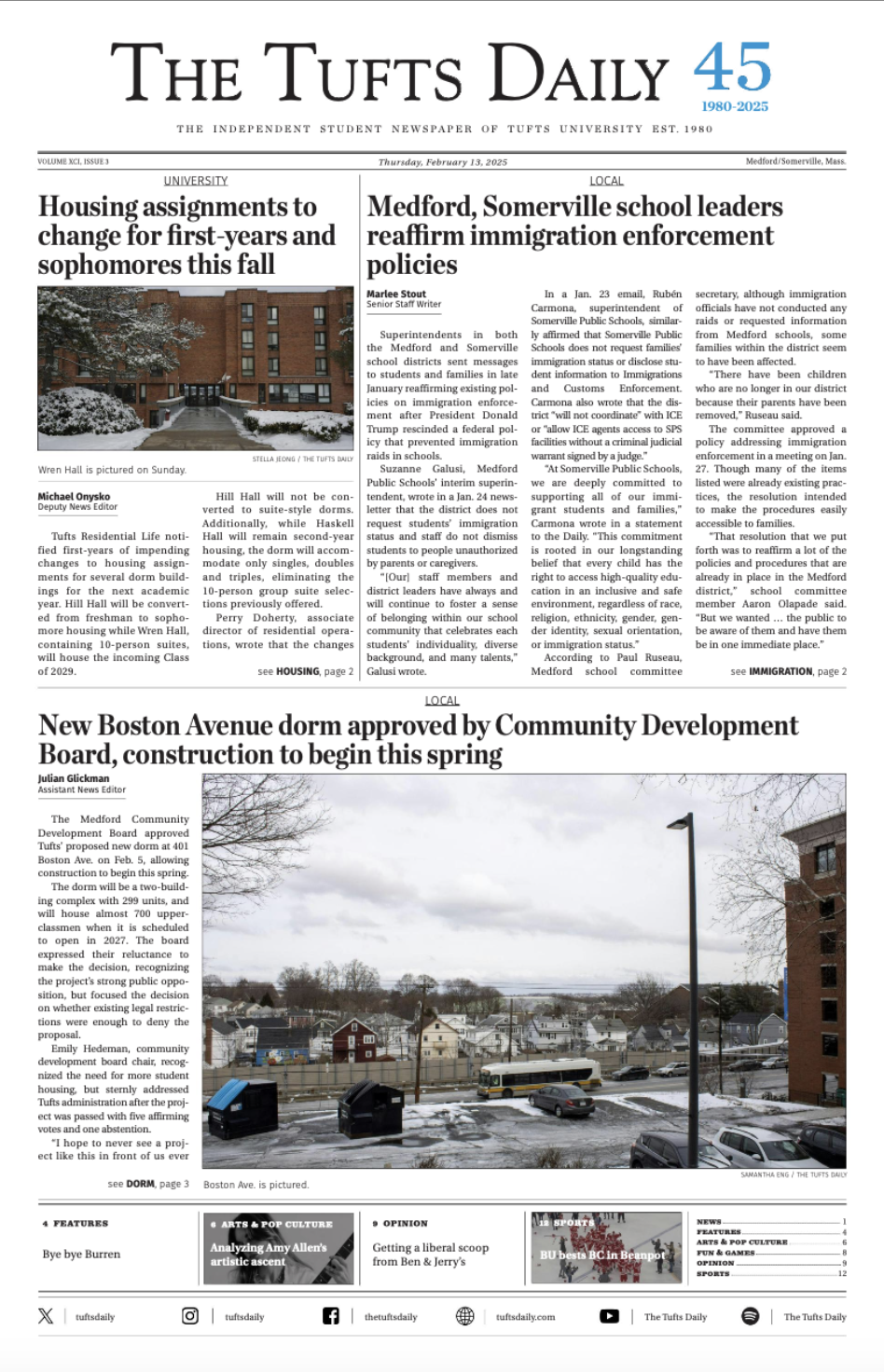The MBTA will initiate a pilot program to provide late-night T service beginning this weekend, extending service hours to as late as 3 a.m. on Friday and Saturday nights. Late-night T service is an enormous step forward in bringing Bostons nightlife up to par with other major American cities. This change will make the city an even more attractive place for college students and residents that many news stories and politicians are calling innovation workers, who tend to be younger and want to stay out later.
Without late-night T service, MBTA trains and buses stop running at 1 a.m. on weekend nights, effectively preventing Tufts students from being able to stay out past 12:30 a.m. (when the last trains leave the city center) in other areas of Boston without having to take what can often be an expensive taxi ride home at the end of the night.
The extended train and bus service on weekend nights will cost an estimated $20 million annually, offset in part by corporate sponsors who have made new long-term marketing agreements with the MBTA. Should the extended service hours be picked up long term, it would likely be funded through the proposed increase in T fares.
Tufts students should take full advantage of the year-long initiative for late-night T service. It gives students the opportunity to experience the nightlife of Boston and get out of the Tufts bubble more frequently.
Additionally, the one-year trial program will be monitored closely for usage. If the extended service does not see enough ridership, the program may not be renewed for the following year.
Extended late-night T hours might also be funded through an adoption of the proposed UPass by major Boston-area universities. The UPass, in which universities would, in effect, purchase large amounts of T passes for their students, would provide the MBTA with an excess of funding. The additional UPass funds could alleviate the MBTAs budget problems and create a sustainable source of income for the extended late-night T service, paid for by those who would utilize late night service the most.
Critics of the extended late-night service have noted the failure of the citys Night Owl program, initiated in 2001, which offered late night service through new bus routes that mimicked existing train lines.
This new late night train service, however, should be far more successful, by relying on a system and map that riders are already extremely familiar with.
This weekend marks the start of a new era for Boston, one that brings it up to par with other great cities that run public transportation late into the night. This is a great opportunity for Tufts students to get off the Hill and see what the citys nightlife has to offer.
More from The Tufts Daily
The Conversation: Musk, the apprentice
By
Evan Wang and Sadie Roraback-Meagher
| February 19
47’s bully policy
By
Alexander Degterev
| February 18





